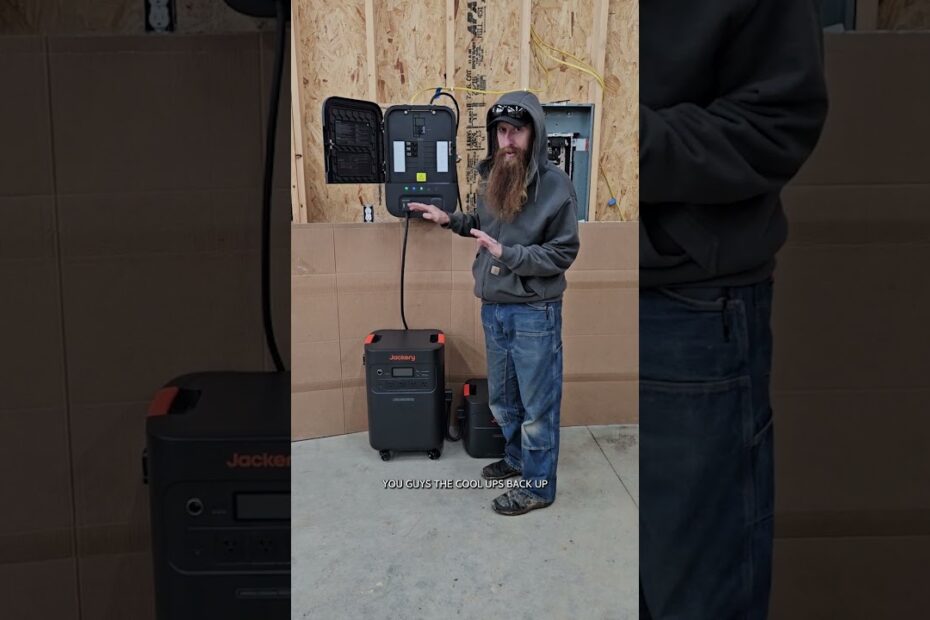Can an electric generator power a house?
Yes, an electric generator can absolutely power a house, but let’s not kid ourselves—it’s like hiring a quirky sidekick to keep the lights on during a blackout, not a full-time superhero. These mechanical marvels convert fuel into electricity through a process called electromagnetic induction, making them a reliable backup for essentials like refrigerators and Wi-Fi (because, let’s face it, no one wants to live without cat videos). Imagine the chaos if your generator failed mid-movie marathon; it’s the unsung hero that steps in when the grid throws a tantrum, as long as you size it right for your home’s needs.
When considering if an electric generator is your jam, think about key factors like fuel type and wattage requirements to avoid any hilarious mishaps, such as blowing a fuse while trying to run your entire kitchen. Here’s a quick rundown of what to ponder:
- Portability: Portable generators are great for temporary use, like camping in your backyard during storms, but they’re not meant for permanent setups.
- Wattage: Match it to your house’s load—too small, and you’re picking favorites among your appliances; too big, and you’re overpaying for a beast that could power a small village.
What is the most efficient type of electric generator?
When it comes to the most efficient type of electric generator, we’re talking about the overachiever that squeezes every last drop of energy out of its fuel—like a coffee machine that also brews your breakfast. The combined cycle gas turbine generator often steals the spotlight, boasting efficiencies up to 60-62% by cleverly reusing waste heat to produce more power, making it the MVP in a world full of lazy energy wasters.
But let’s not leave you hanging; efficiency boils down to a few key factors that make this generator the class clown who actually passes the test. Here’s a quick rundown of what sets it apart:
- It pairs a gas turbine with a steam turbine, turning what other generators waste into extra watts.
- By capturing exhaust heat, it avoids the classic blunder of letting energy escape like a bad magic trick.
- This setup outperforms standalone options, proving that teamwork really does make the dream work in the generator game.
What size generator will run a house?
Picking the right size generator for your house is like choosing the perfect pair of shoes for a marathon—too small and you’ll trip over your own power needs, too big and you’ll be lugging around unnecessary bulk while your wallet cries uncle. Imagine your home as a quirky cast of characters: the fridge that’s always hungry for watts, the AC unit that’s a diva demanding cool air, and the lights that throw a party every evening. To keep everything humming without a hitch, you’ll want a generator in the 5,000 to 15,000 watt range, depending on whether you’re powering a cozy bungalow or a mansion that could double as a small village. Remember, oversizing might make you feel like a superhero, but it’s all about matching your actual energy demands to avoid wasting fuel and money.
When sizing up your generator, start by tallying your essential appliances to ensure you don’t leave your toaster in the dark during a blackout. For instance, a basic setup might require around 5,000 watts for lights and a fridge, while adding in an AC or well pump could push you toward 10,000 watts or more—think of it as arm-wrestling your energy bill. Here’s a quick list of common household power hogs to consider:
- Refrigerator: About 600-1,200 watts, because it refuses to let your leftovers spoil the fun.
- Air conditioner: 1,000-5,000 watts, the drama queen that keeps things cool under pressure.
- Lighting and outlets: 500-1,500 watts, for when you need to see what you’re tripping over in the dark.
Always factor in a buffer for surprises, like that blender you whip out for midnight smoothies, to keep your home powered without turning into a comedy of errors.
Is the government giving out free generators?
So, you’re pondering if the government is handing out free generators like they’re party favors at a black-tie event? Let’s pump the brakes on that daydream—spoiler alert, it’s not exactly a thing that’s happening across the board. Governments might step in with emergency aid during blackouts or natural disasters, tossing out resources to those in need, but expecting a shiny new generator delivered to your doorstep is about as likely as spotting a unicorn in your backyard. In short, while the idea sounds electrifyingly appealing, it’s mostly just a spark of wishful thinking fueled by online rumors and hopeful hearts.
Now, if you’re still buzzing with curiosity, here’s a quick rundown of what to keep in mind when chasing those generator myths:
- Double-check official sources like FEMA or local emergency services for any real programs, because let’s face it, freebies are rarer than a politician keeping a straight face.
- Avoid falling for shady online schemes that promise free gear, as they often lead to more headaches than horsepower.
